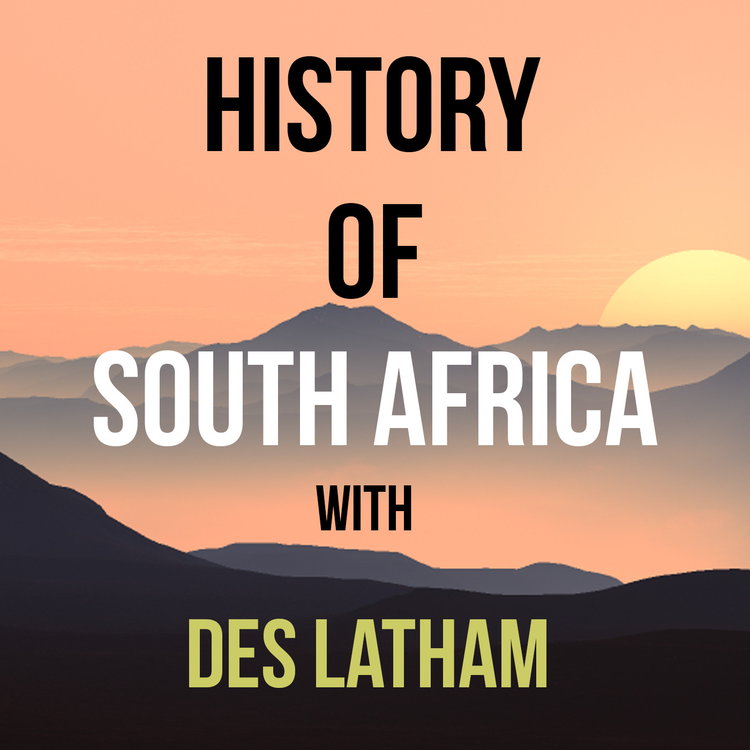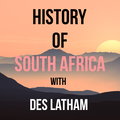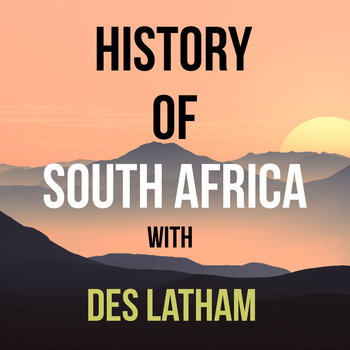
Episode 192 - The Sand River Convention, the Transvaal slash Zuid Afrikaanse Republiek dot co dot za
Loading player...
This is episode 192 and what a packed episode it is!
The Sand River Convention and the Battle of the Berea await. The former created a new state called the Zuid Afrikaans Republiek and the latter reinforced the Basotho power under Moshoeshoe which would ultimately lead to the kingdom of Lesotho being born.
Two events that too place at the book ends of 1852 - the Convention signed in January, and the Battle of the Berea in December - left their indelible marks on South African history.
The decision by the British government to sign a Convention with the Boers of the Transvaal was the result of two local officials, William Samuel Hogge and Charles Mostyn Owen. Because the 8th frontier war against the amaXhosa was going so badly, it was imperative for the British to deal with other possible threats.
When they had reached Bloemfontein in November 1851, Hogge and Owen were assailed by conspiracy and tales of intrigue, some of which I explained last episode. Hogge was the senior of the two, and realised pretty quickly that the biggest problem was the annexation of the Orange River Sovereignty by Harry Smith.
The Governor, said Hogge in a letter, was either “deceived or deceived himself in supposing that the majority of the white people here ever desired British authority to be extended over them…”
That was the last thing the Boers wanted.
He also realised that the other challenge to any authority in the Orange River Sovereignty was the chaos between different groups of people and involvement of various British officials in these conflicts.We’re dealing with 1852, January. There were two centres of power at this point, one around Andries Pretorius and the other around Hendrick Potgieter. The main cause of conflict was Potgieter’s belief that his position of Commandant-General of the Voortrekkers was a post for life.
Pretorius and his adherents feared the concentration of military power in one man’s hand and Potgieter’s adherents believed Pretorius had an insatiable power lust. Each of these two believed they were entitled to be numero uno, Nommer een, die generaal, and each believed the other was kortbroek, not substantial enough to equal themselves.
Eventually the convention was set for January 16th 1852 at Venter’s Farm near the junction of the Cool Spruit, the Coal Spruit, and Sand River. Here the Boer delegates gathered, as the enigmatic forgerer Van Der Kolff fled, with Pretorius and his 300 followers.
IT is with some amazement then folks, that this crucial gathering, this fundemental moment in south Africa, lasted just a day.
One day — and that one day changed the history of the country.
The Sand River Convention and the Battle of the Berea await. The former created a new state called the Zuid Afrikaans Republiek and the latter reinforced the Basotho power under Moshoeshoe which would ultimately lead to the kingdom of Lesotho being born.
Two events that too place at the book ends of 1852 - the Convention signed in January, and the Battle of the Berea in December - left their indelible marks on South African history.
The decision by the British government to sign a Convention with the Boers of the Transvaal was the result of two local officials, William Samuel Hogge and Charles Mostyn Owen. Because the 8th frontier war against the amaXhosa was going so badly, it was imperative for the British to deal with other possible threats.
When they had reached Bloemfontein in November 1851, Hogge and Owen were assailed by conspiracy and tales of intrigue, some of which I explained last episode. Hogge was the senior of the two, and realised pretty quickly that the biggest problem was the annexation of the Orange River Sovereignty by Harry Smith.
The Governor, said Hogge in a letter, was either “deceived or deceived himself in supposing that the majority of the white people here ever desired British authority to be extended over them…”
That was the last thing the Boers wanted.
He also realised that the other challenge to any authority in the Orange River Sovereignty was the chaos between different groups of people and involvement of various British officials in these conflicts.We’re dealing with 1852, January. There were two centres of power at this point, one around Andries Pretorius and the other around Hendrick Potgieter. The main cause of conflict was Potgieter’s belief that his position of Commandant-General of the Voortrekkers was a post for life.
Pretorius and his adherents feared the concentration of military power in one man’s hand and Potgieter’s adherents believed Pretorius had an insatiable power lust. Each of these two believed they were entitled to be numero uno, Nommer een, die generaal, and each believed the other was kortbroek, not substantial enough to equal themselves.
Eventually the convention was set for January 16th 1852 at Venter’s Farm near the junction of the Cool Spruit, the Coal Spruit, and Sand River. Here the Boer delegates gathered, as the enigmatic forgerer Van Der Kolff fled, with Pretorius and his 300 followers.
IT is with some amazement then folks, that this crucial gathering, this fundemental moment in south Africa, lasted just a day.
One day — and that one day changed the history of the country.

